Putting essential oils in bath can give you a lot of health benefits in both physical and overall mental well-being. The good news is that an oil bath is a straightforward regimen that you can perform weekly or several times a week.
Our article provides more detailed information on the health benefits of bath oils and specific scents like lavender in bath water or peppermint essential oil in bath. In addition, you’ll also learn how to use the bathing oil safely and boost its effectiveness.
So without any further delays, let’s begin…
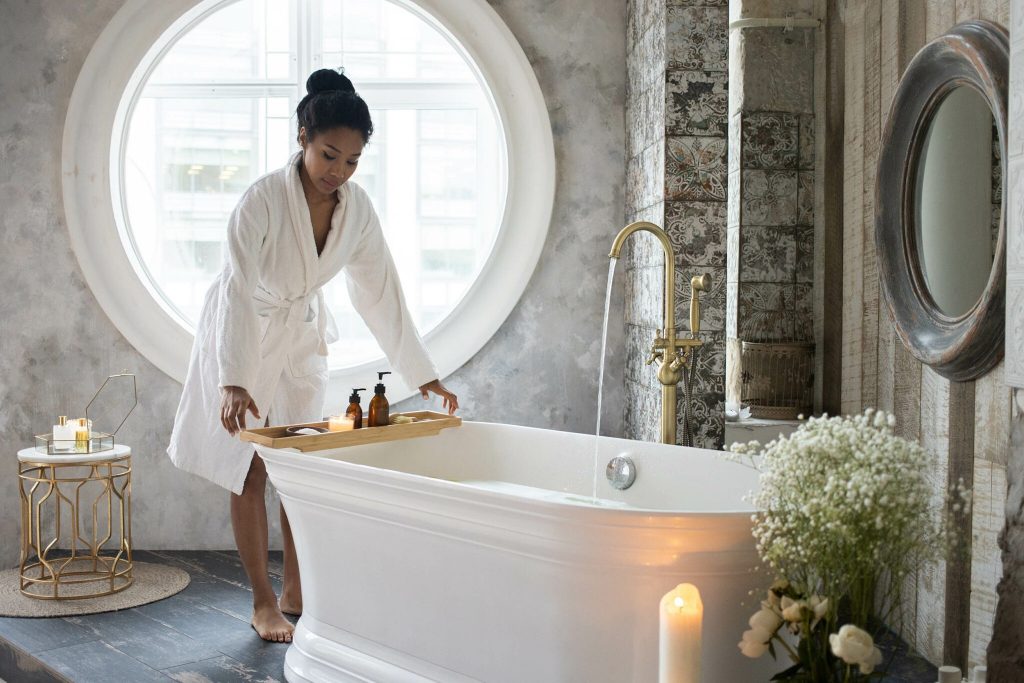
- Why It’s Good to Use Essential Oils in Bath?
- Best Essential Oils to Add to the Bath
- How to Safely Add Essential Oils in Bath?
Why It’s Good to Use Essential Oils in Bath?
Aside from its hygienic purposes, taking baths is a form of self-care. In addition, warm or cold water has relaxing benefits such as calming your sore muscles or relieving you from stress.
The aromatic scent of the essential oil in bath gives you a soothing odor and puts your mind in a serene state as you wash your body.
The following are additional popular known health benefits of using essential oils in your bathtub:
- Aromatherapy is best for treating nausea and vomiting caused by motion sickness
- It lowers fatigue
- As mentioned, it calms tense muscles as a result of intense workouts or training sessions
- Essential oils, especially lavender scents, are known to relieve people from anxiety and depression
- It improves sleeping patterns or the circadian rhythm
Although it possesses several advantages, holistic and health experts suggest not using an ample amount of essential oils because of potential health hazards concerning its excessive use.
Best Essential Oils to Add to the Bath
If you are considering adding essential oils in bath, the following are some of the best essential oils for bath you can use to improve your regular routine:
1. Lavender Essential Oil
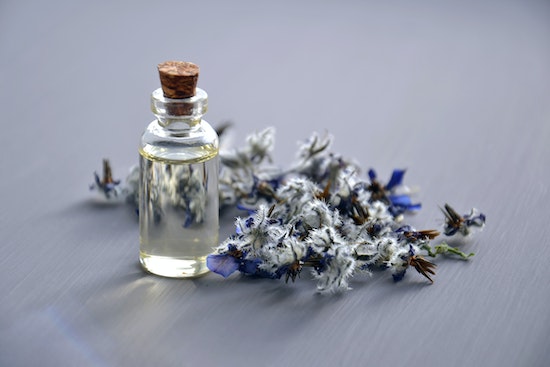
The most well-known essential oil for holistic and mental health is lavender. The herb contains a strong yet aromatic scent that emits a soothing and relaxing odor.
However, you have to be mindful whenever you are using this herb because too much lavender oil in bath is known to lead to skin irritations or trigger skin allergies.
2. Peppermint Essential Oil
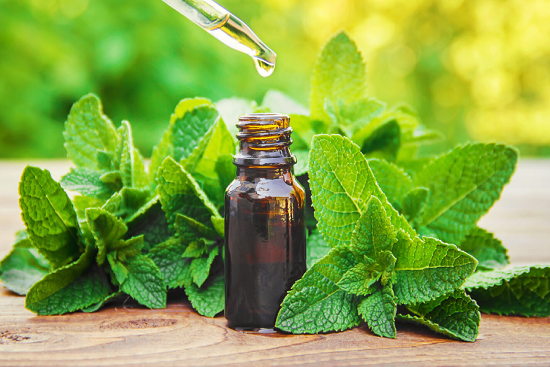
Peppermint essential oil is the option to be used in baths if you are particularly having episodes of headaches or any form of muscle pain. The extracts from this herb are known to produce a spicy with tiny blends of sweetness that are relaxing and improve cognitive functions.
3. Jasmine Essential Oil
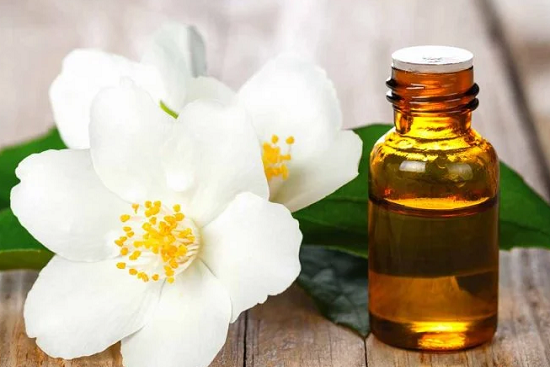
Jasmine extracts have been dubbed by many as the romantic essential oil due to the belief of many that it has aphrodisiac properties. Although there’s no scientific research to back them up, it definitely has a pleasing odor that’s romantic in every sense of the word.
4. Rose Essential Oil
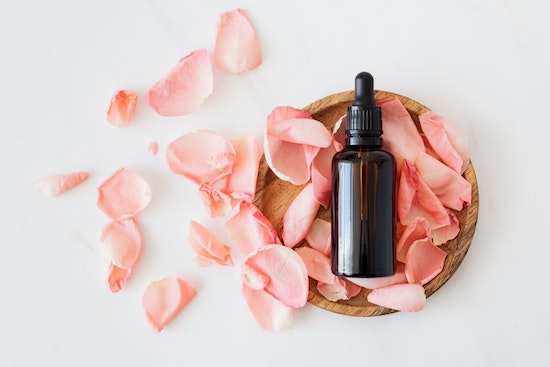
Rose is a popular garden ornament but not as much as an essential oil. However, this less-known essential oil offers significant benefits in aromatherapy. For example, its warm and floral scent is excellent for rejuvenating the skin and cleaning off dead skin cells stuck in the pores.
5. Roman Chamomile Essential Oil
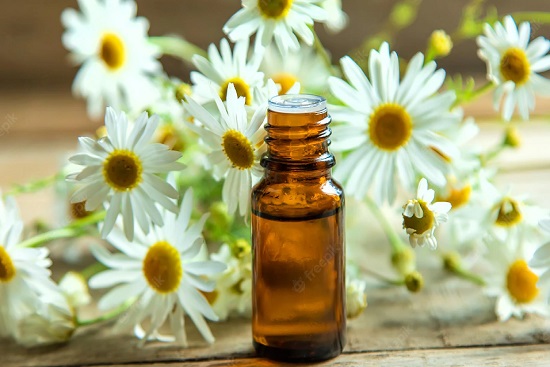
Roman chamomile is an excellent fusion of lavender oils. Although the essential oil is relatively great on its own, fusing it with lavender extracts boosts the pleasantness of the aforementioned. As a result, it works great if you are aiming to benefit from healthy and glowing skin from the bath.
But allow me to remind you once again that lavender is particularly strong, and essential oils in bath burn skin if you negligently put extracts excessively.
6. Eucalyptus Essential Oil
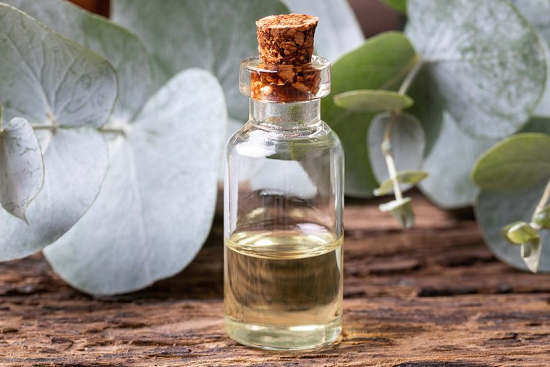
Raw eucalyptus extracts are popularly known for the treatment of cough and headaches. But one underrated benefit of eucalyptus is that it is among the best essential oils in bath for anxiety as well.
7. Orange Essential Oil
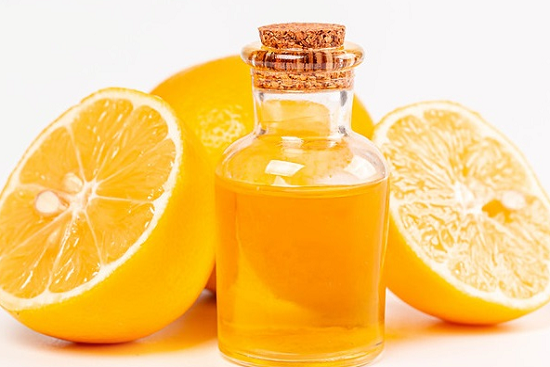
Similar to eucalyptus, the orange essential oil is something that you might not have imagined that is being used as essential oils in bath as well. But there is actually an orange essential oil.
Also, there are reports that the scents of orange essential oil are uplifting, especially when they are fused with rose, jasmine, or ylang-ylang.
If you are looking for a showerhead that can best complement your essential oil and bathtub, then you can check out Declinko’s ABS Square Handheld Rain Shower Head Chrome.
How to Safely Add Essential Oils in Bath?
There are several considerations about safety you have to bear in mind as you plan to add essential oils to bath for beauty and relaxation purposes, and some of them include the following:
Fill the Tube with Water Beforehand
Before putting in the essential oil, it is important that you fill the tub with water first and foremost. Herb extracts can be quite slippery, and putting water first can avoid both falling into the bathtub and cleaning it with difficulty. So you have to remind yourself of this one important concern first.
Make Your Own Mix
You have to be careful in pouring essential oils into your bathtub because the solution is highly concentrated, which could cause epidermal problems if exposed to the skin for long periods.
In order to achieve a safe level, you can mix your main essential oil with carrier oils, which should improve the aroma and effectiveness of the essential oil.
The recommended solution by experts is to dilute 1% to 4% of your main essential oil to the bathtub before adding the carrier oil, for example, vegetable oil.
Avoid Using Essential Oils in Pregnancy
An important question that one may have is, can you use essential oils in bath when pregnant? Well, the answer is no. This is also the same case if the person is a lactating mother, has skin allergies, or has an infant.
Conclusion
Using essential oils in your regular hygiene indeed delivers a lot of health benefits, such as relieving you from physical pain and calming your troubled mind. However, be reminded of some of the potential health risks of essential oils in the bath. We hope that this article will figure things out for you.
Frequently Asked Questions about Essential Oils in Bath
Now, the following are some of the commonly asked questions about the subject matter of essential oils in baths:
Yes. You can add essential oil to your bath water since it is known to provide several health benefits like improving cognitive function, mental health, skin health, etc. You can read the passage above to get more tips on potting essential oils in baths.
In general, all essential oils are not harmful. But excessive use can lead to skin problems. The most commonly used ones are sesame, gingelly oil, coconut, mustard oil, and castor.
0 Comments for “A Simple and Quick Way to Setup Essential Oils in Bath”